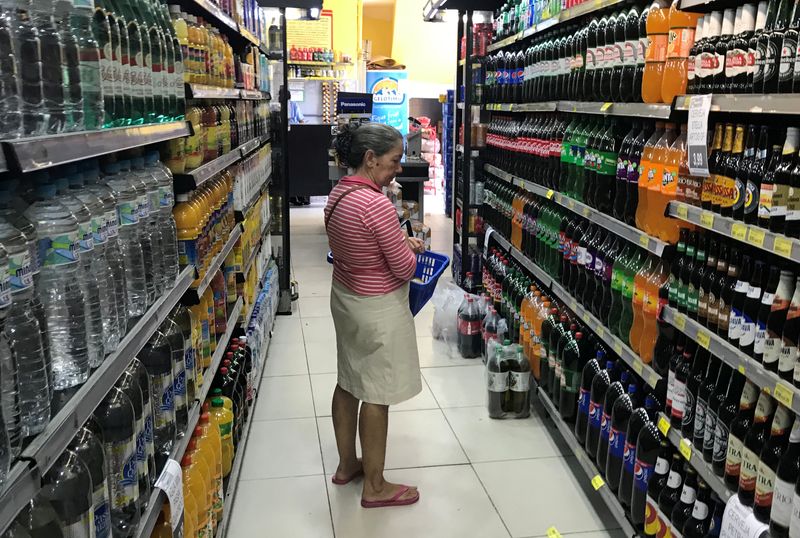By Luana Maria Benedito
SAO PAULO (Reuters) - Consumer prices in Brazil rose less than expected in the month to mid-May, data from statistics agency IBGE showed on Tuesday, as the impact on food inflation from recent floods turned out to be lighter than initially feared.
The latest inflation reading, economists say, might ease pressure on the central bank to halt its ongoing monetary easing cycle.
Prices as measured by the IPCA-15 index were up 0.44% in the period, IBGE said, picking up from 0.21% in April but below the 0.48% rise expected by economists polled by Reuters.
Annual inflation slowed down to 3.70%, the statistics agency added, slightly below the 3.72% forecast by economists and hitting the lowest level for a mid-month reading in Latin America's largest economy since October 2020.
Eight out of the nine groups surveyed by IBGE posted price increases in the month to mid-May, with healthcare and transportation leading the way, driven respectively by higher pharmaceutical and fuel prices.
The mid-May figures maintain Brazil's inflation index within the central bank's target, which currently stands at 3%, plus or minus 1.5 percentage points.
The latest reading was the first to reflect deadly floods in Rio Grande do Sul state earlier this month, which killed nearly 170 people and affected food output in the farming state, a top meat and grain producer.
"In a scenario where the market is concerned about whether the central bank will continue its cycle of rate cuts or not, this IPCA-15 reading shows that so far the Rio Grande do Sul effects are not pressuring inflation," said Jefferson Laatus, chief strategist at broker Grupo LAATUS.
Food and beverage prices rose 0.26% in the month to mid-May, according to IBGE data, down from a 0.61% increase in the previous month.
Helena Veronese, chief-economist at B.Sides Investimentos, said the mid-May inflation data had a "benign composition" and is consistent with another 25-basis-point interest rate cut at the next central bank meeting in June.
She cautioned, however, that the full extent of the flooding's impact on inflation is still uncertain, as additional pressures are still expected to stem from products such as rice and wheat.
Interest rates futures still price in a nearly 75% likelihood of a pause in Brazil's central bank easing cycle in June.

The monetary authority reduced its benchmark interest rate by 25 basis points to 10.50% earlier this month, after six straight cuts twice that size.
Policymakers have committed to work to bring inflation back to the 3% target and have voiced concern about inflation expectations sitting above that level for this year and the next.